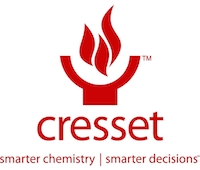Members Login

Channels
Special Offers & Promotions
Fragments and Conformations from the CCDC
Cresset, innovative provider of software and services for small molecule discovery and design, announces the release of the new Spark CSD Fragment Database derived from the Cambridge Crystallographic Data Centre’s (CCDC) Cambridge Structural Database (CSD).
 “Spark replaces fragments of molecules with biologically equivalent alternatives,” explains Dr Robert Scoffin at Cresset. “It is ideal for scaffold hopping, moving to clear IP, replacing R-groups and growing or linking fragments. This new database of fragments from the CSD means that Spark’s results contain chemical replacements that have experimentally validated chemistry and known conformations. This gives them a higher chance of a smooth synthetic route and better likelihood of being a valid bioactive conformation.”
“Spark replaces fragments of molecules with biologically equivalent alternatives,” explains Dr Robert Scoffin at Cresset. “It is ideal for scaffold hopping, moving to clear IP, replacing R-groups and growing or linking fragments. This new database of fragments from the CSD means that Spark’s results contain chemical replacements that have experimentally validated chemistry and known conformations. This gives them a higher chance of a smooth synthetic route and better likelihood of being a valid bioactive conformation.”
“The CSD is the world’s most comprehensive database of expert-curated 3D small-molecule organic and metal-organic crystal structures, containing the results of over ¾ million X-ray and neutron analyses,” commented Colin Groom, Executive Director of the CCDC. “The new Spark CSD Fragment Database further extends the ways in which researchers can use this wealth of crystallographic data to address a wide range of scientific problems.”
Media Partners


